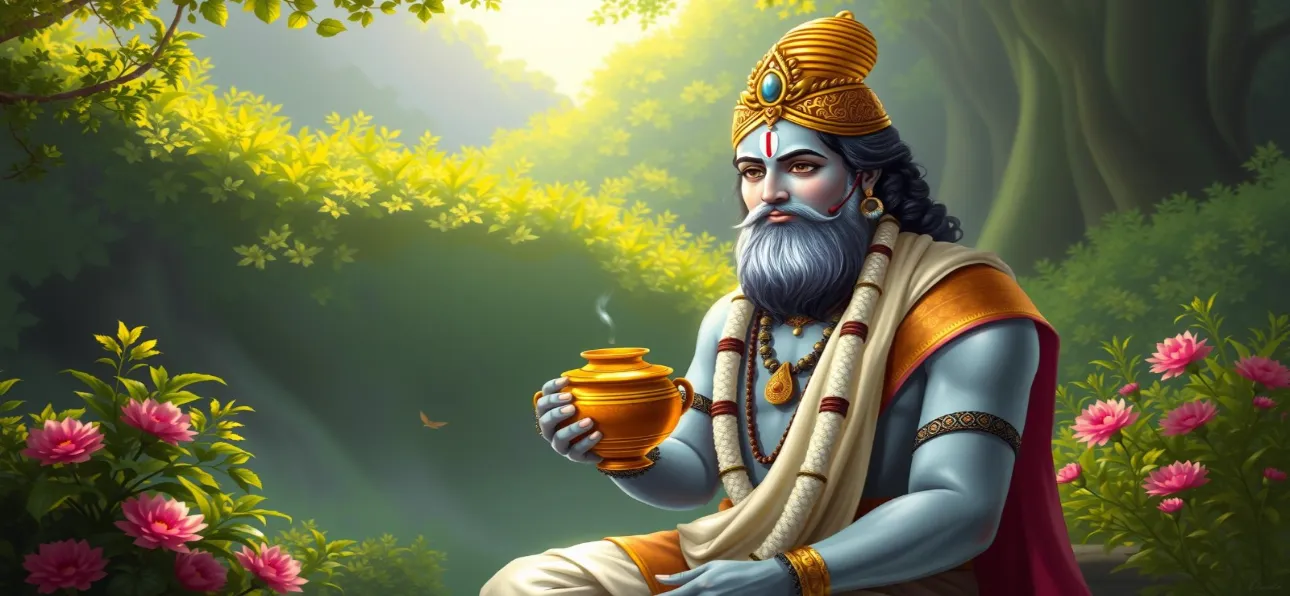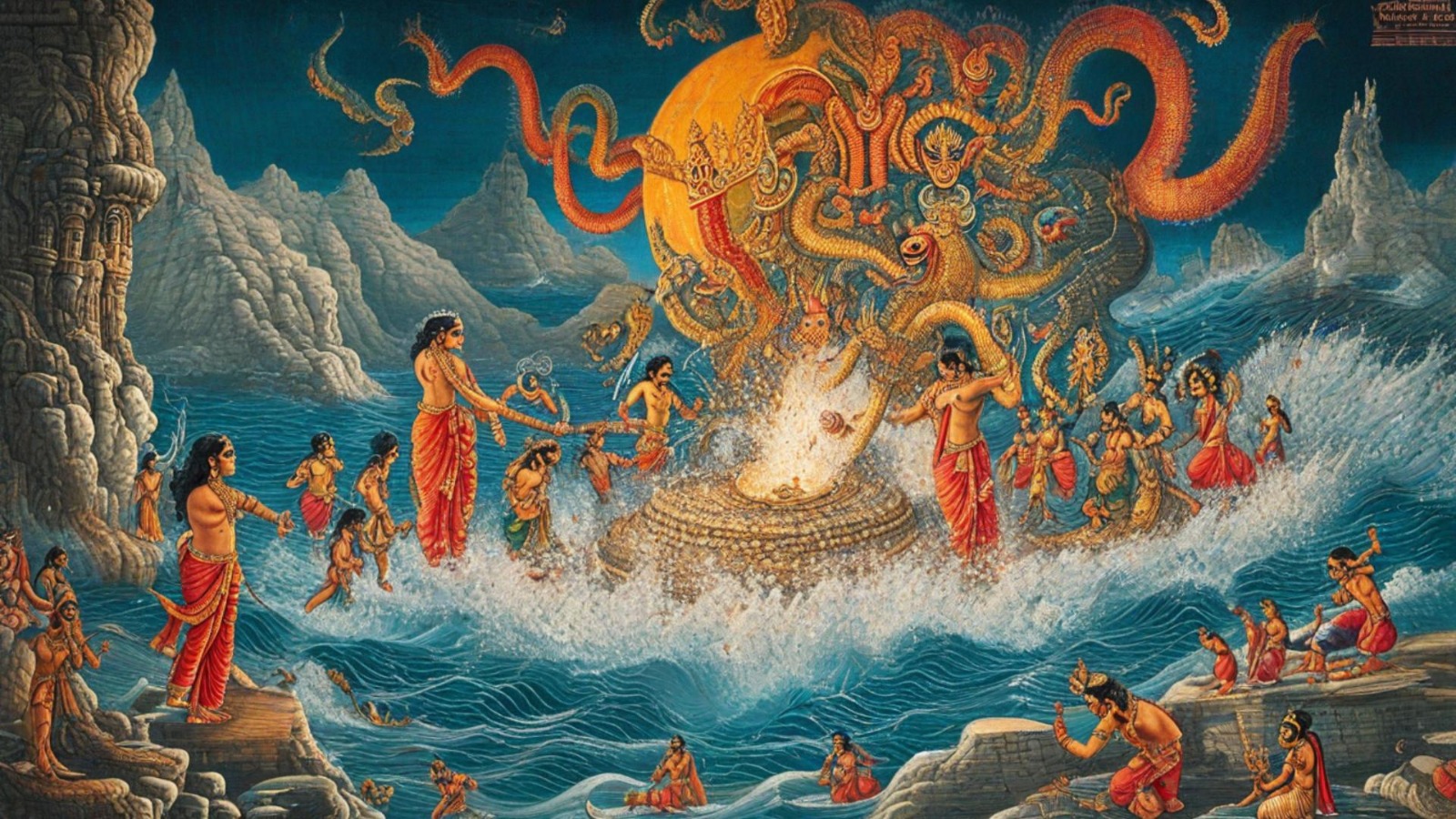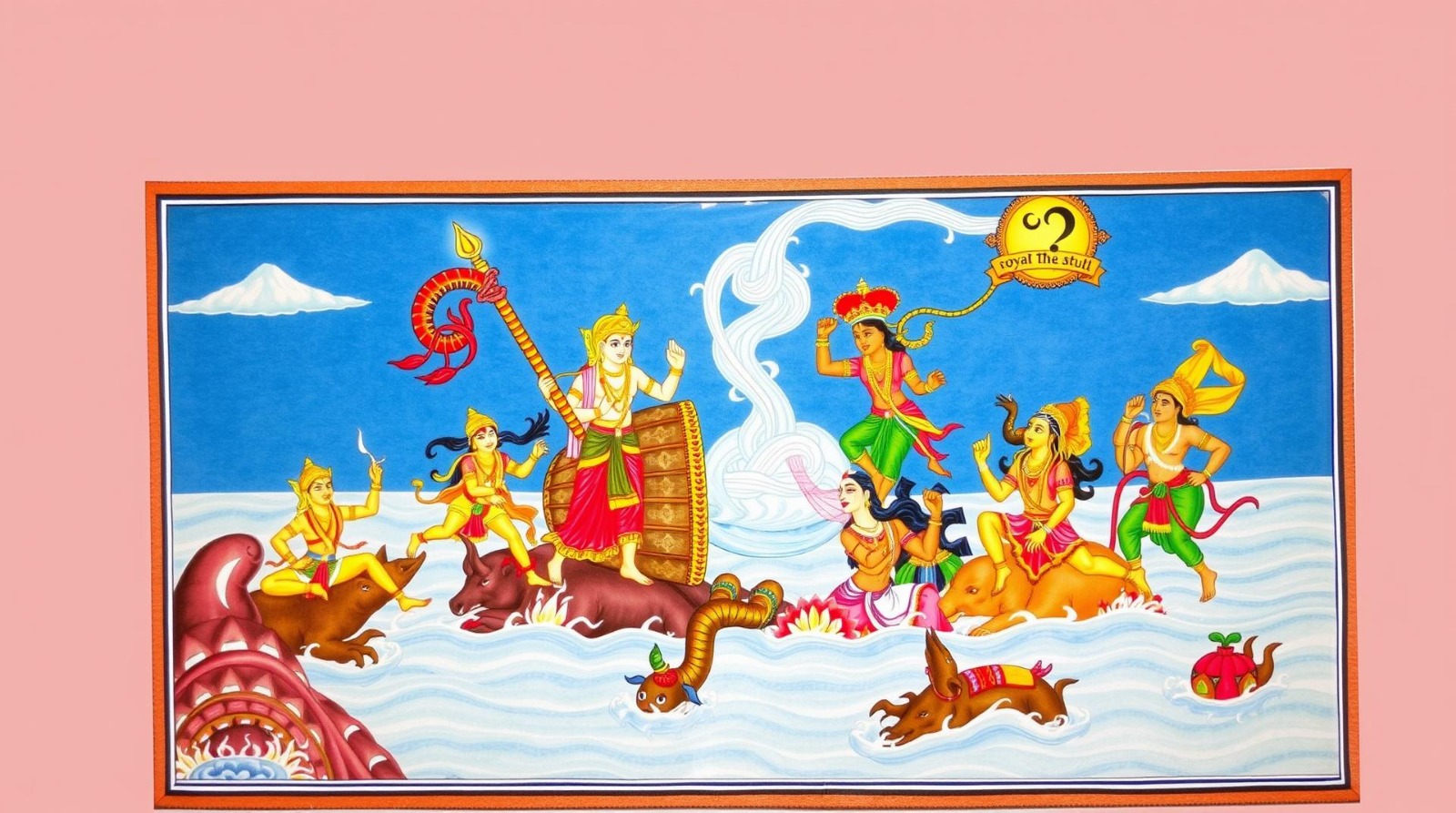
Vidushi Gaur/ New Delhi
As the vibrant lights of Diwali begin to brighten homes across India, Dhanteras stands as the festival’s opening ceremony. This occasion, traditionally marked by the purchase of gold, silver, and household items, also carries profound spiritual meaning, especially as it venerates Dhanvantari, the god of medicine, health, and healing. But who exactly is Dhanvantari, and why is his story so deeply intertwined with Dhanteras?
Dhanvantari is regarded as the celestial physician and the founder of Ayurveda, the ancient Indian system of medicine. His legend emerges from the Puranic scriptures, where he is described as an incarnation of Lord Vishnu. According to the mythological tale of the ‘Samudra Manthan’ or the churning of the ocean, Dhanvantari played a pivotal role. During the Samudra Manthan, the gods (Devas) and demons (Asuras) churned the ocean of milk to obtain the nectar of immortality (Amrit). This elixir was believed to bestow eternal life and invincibility on its consumer, leading both the gods and demons to seek it out.
 A representation of Samudra Manthan
A representation of Samudra Manthan
The Gods and demons used Mount Mandara as the churning rod, while Vasuki, the serpent king, served as the rope. The intense churning led to the emergence of various divine and mystical beings, treasures, and potions. Dhanvantari, the divine healer, finally emerged from the ocean holding a pot of Amrit. His arrival symbolised healing, longevity, and health — gifts for all those who revere his wisdom. In his other hand, he carried medicinal herbs, symbolising his association with the ancient art of healing and medicine. His role in bringing forth the elixir elevated his status as the God of health, and his presence brought much-needed hope to humanity. As a result, Dhanteras celebrates his arrival and is believed to bring blessings of health, wealth, and well-being.
 Another representation of Samudra Manthan
Another representation of Samudra Manthan
Dhanvantari is also revered as the father of Ayurveda, a system of medicine that has been practiced in India for thousands of years. The roots of Ayurveda trace back to the Vedic period, when Dhanvantari was believed to have imparted his knowledge of healing to the sages. This ancient practice emphasises a holistic approach to health, balancing the body, mind, and spirit. Ayurvedic treatments use natural remedies, herbal medicines, and dietary regulations, promoting preventive healthcare and self-care.
.jpeg) Dhanavantari as father of Ayurveda
Dhanavantari as father of Ayurveda
In Ayurveda, the principles laid down by Dhanvantari help define practices and treatments that align with nature’s rhythms and the body's inherent wisdom. This legacy of healing, based on promoting wellness and preventing illness, has made Ayurveda one of the world’s most respected systems of medicine. Dhanvantari’s role in disseminating this knowledge is commemorated on Dhanteras, encouraging people to adopt lifestyles that promote long-term health and harmony.
Today, Dhanteras is celebrated on the thirteenth day (Trayodashi) of the Krishna Paksha (dark fortnight) in the month of Kartika. Traditionally, people purchase items made of gold, silver, and metal on this day, as it is believed that buying these metals brings prosperity and wards off negative energy. While this practice is still popular, Dhanteras has taken on new dimensions in modern times, with an emphasis on health and well-being.
.jpeg) People buying gold on Dhanteras
People buying gold on Dhanteras
In many households, Dhanteras has become a day to schedule health check-ups, Ayurvedic consultations, and even engage in wellness practices such as yoga and meditation. This trend reflects Dhanvantari’s teachings, reminding people of the importance of preventive health measures and holistic care. Amid the festive season's indulgence, Dhanteras serves as a gentle reminder to prioritize health, a theme that has resonated strongly, especially in recent times.
Across India, the rituals and customs of Dhanteras vary but share common threads of devotion, prosperity, and gratitude. The day often begins with a small ritual of cleansing and decorating the home, followed by the lighting of an oil lamp at the entrance to welcome Dhanvantari’s blessings.
In temples dedicated to Dhanvantari, like the Dhanvantari Temple in Tamil Nadu, devotees gather to offer prayers and seek blessings for good health and longevity. Special pujas (worship rituals) are performed to invoke his healing energies, and families chant mantras and offer flowers to Dhanvantari’s idol or picture, usually placed in the prayer room.
.jpeg) Dhanavantari temple in Tamil Nadu
Dhanavantari temple in Tamil Nadu
Many people also perform a special Lakshmi puja, invoking the goddess of wealth and prosperity. The dual reverence for Dhanvantari and Lakshmi highlights the festival’s deep-seated belief that true wealth lies in good health. For families, Dhanteras brings a unique opportunity to come together and reinforce the importance of wellness, healing, and abundance.
.jpeg) People praying to Goddess Lakshmi on Diwali
People praying to Goddess Lakshmi on Diwali
READ MORE: "Ayurveda books list 152 surgeries; it was neglected in the British rule"
In an era when health challenges and wellness priorities have transformed daily life, Dhanteras holds a timeless message. It encourages people to take stock of their health, appreciate the richness of Ayurveda, and find balance amid the festivities. As homes light up and celebrations begin, the story of Dhanvantari endures, reminding everyone of the priceless wealth of health and the eternal wisdom he imparts each year on this sacred day.
